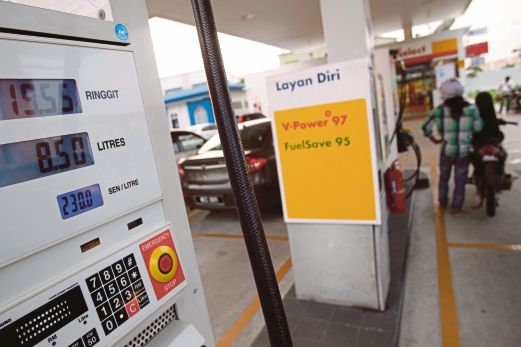MALAYSIA is likely to save up to RM12 billion next year following the government’s move to implement the managed float system for retail fuel products such as RON95 and diesel next month, said Barclays Research.
“This should make up for the shortfall in petroleum tax and royalties, which have also fallen in tandem with declining crude oil prices,” said the United Kingdom-based research house.
According to Barclays, petroleum tax and royalties constitute more than RM35 billion of revenue this year, or 15 per cent of total revenue.
The fuel subsidies for public transport vehicles, fishing vessels and cooking gas have been left unchanged.
The government said last Friday it was moving the pricing of retail products such as RON95 and diesel to an automatic price mechanism on a managed float system.
It had raised the fuel prices before the 2015 Budget was presented in Parliament last month.
Barclays said Malaysia’s move follows India and Indonesia in addresing fuel subsidies and is likely to save between RM10 billion and RM12 billion, or one to 1.2 per cent of gross domestic product (GDP) next year.
“We continue to expect the 2015 fiscal deficit to come in at three per cent of GDP,” it said.
In terms of its immediate impact, Barclays said RON95 and diesel prices might decline modestly (at five sen each) early next month.
However, it cautioned that this impact could be negated by a potential electricity price hike in the first quarter of next year and the implementation of the Goods and Services Tax in April.
“If fuel prices change regularly, then the impact on inflation expectations may be larger than previous fuel price changes,” Barclays said in reference to a comment by Bank Negara Malaysia governor Tan Sri Dr Zeti Akhtar Aziz that the inflation impact of the fuel pricing decision was likely to be minimal and little impact on monetary policy.
In order to limit the potential impact from higher prices in future, Barclays said the government might increase cash transfers to lower income households.
“In our view, this would mean that the path of fiscal consolidation is unlikely to change significantly from a 3.5 per cent of GDP fiscal deficit this year to three per cent next year,”


No comments:
Post a Comment